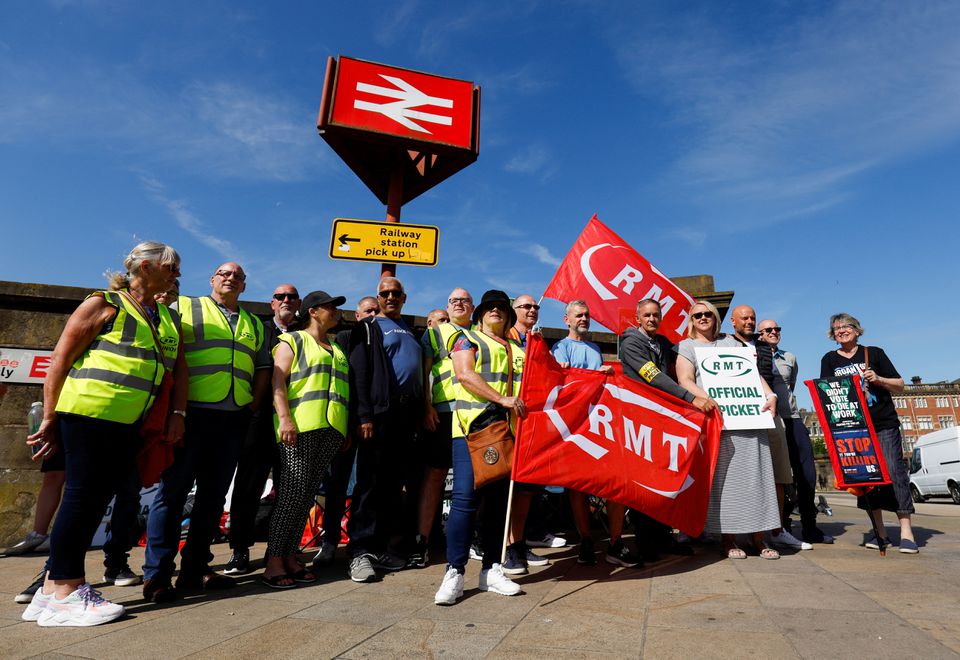Tens of thousands of workers walked out on the first day of Britain's biggest rail strike in 30 years on Tuesday with passengers facing further chaos as both the unions and government vowed to stick to their guns in a row over pay.
Some of the more than 40,000 rail staff who are due to strike on Tuesday, Thursday and Saturday gathered at picket lines from dawn, causing major disruption across the network and leaving major stations deserted. The London Underground metro was also mostly closed due to a separate strike.
Prime Minister Boris Johnson, under pressure to do more to help Britons facing the toughest economic hit in decades, said the strike would harm businesses still recovering from COVID.
Unions have said the rail strikes could mark the start of a "summer of discontent" with teachers, medics, waste disposal workers and even barristers heading for industrial action as inflation pushes 10%. read more
"The British worker needs a pay rise," Mick Lynch, secretary-general of the Rail, Maritime and Transport Workers told Sky News. "They need job security and decent conditions."
During the morning rush-hour, roads were busier than normal with cars, bikes and pedestrians. Hospital staff said some colleagues slept at work overnight to maintain care.
Johnson told his cabinet the strikes were "wrong and unnecessary" and said his message to the country was that they needed to be ready to "stay the course" as improvements to the way railways are run was in the public's interest.
A survey by pollsters YouGov earlier this month found public opinion divided, with around half of those questioned opposed to the action and just over a third saying they supported it.
Leo Rudolph, a 36-year-old lawyer who walked to work, said he would become more disgruntled the longer the dispute holds.
"This isn't going to be an isolated occurrence, right?" he told Reuters.
Inflation has soared across Europe on the back of a major rise in energy costs and Britain is not alone in facing strikes.
Action over the cost of living in Belgium caused disruption at Brussels Airport on Monday, while Germany's most powerful union is pushing for large wage increases and in France President Emmanuel Macron is facing unrest over pension reforms.
Britain's economy initially rebounded strongly from the COVID-19 pandemic but a combination of labour shortages, supply chain disruption, inflation and post-Brexit trade problems has prompted warnings of a recession.
The government says it is supporting millions of the poorest households but it warns that above-inflation pay rises would damage the fundamentals of the economy and prolong the problem.










0 Comments